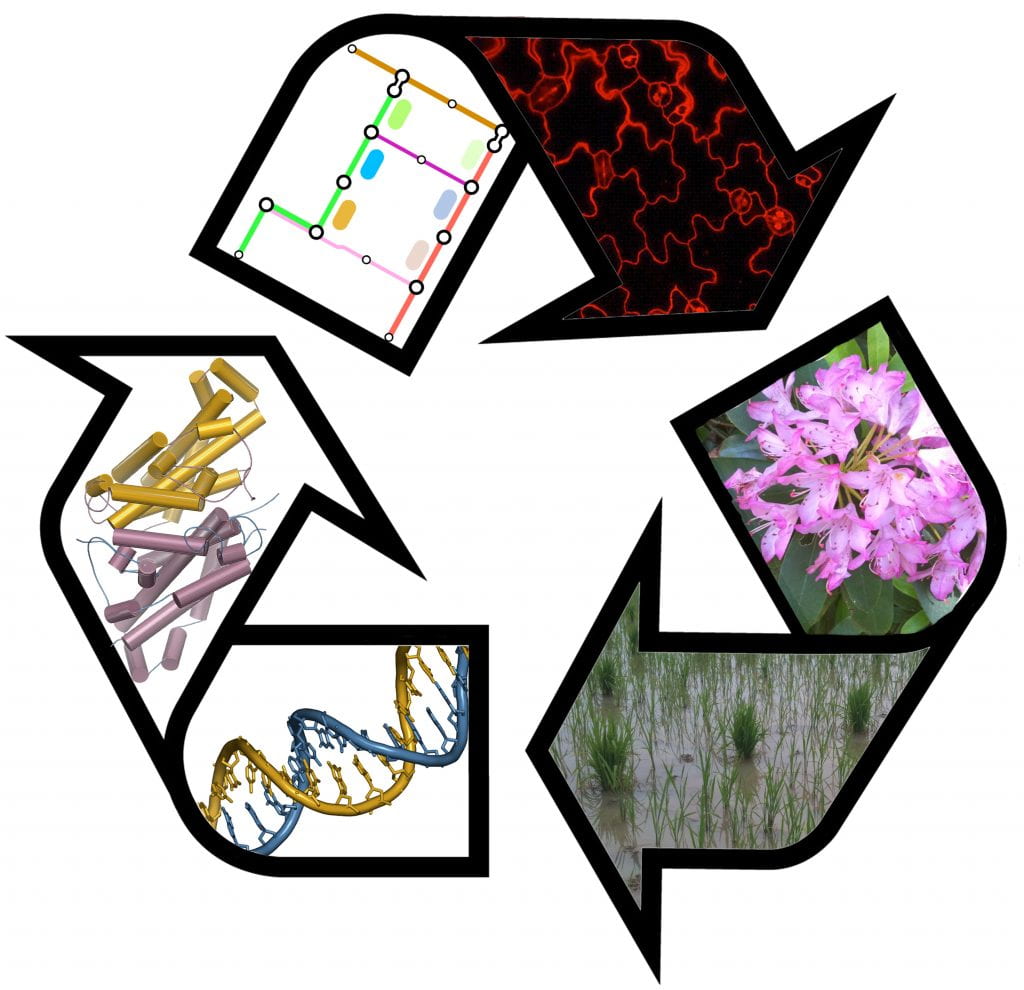Year 1: Research Rotations, Coursework, & Join a Thesis Lab
Research Rotations. Rotations help students make an informed decision regarding their thesis lab. Students complete at least three six-week rotations in year 1. Rotations are in labs on Washington University’s Danforth and Medical Campuses, as well as at the Donald Danforth Plant Science Center and Missouri Botanical Garden. At least one rotation must be conducted at Washington University with a mentor whose primary affiliation is with the PMB Program.
Coursework. In addition to rotations, students take two PMB core courses, one required DBBS course, and one advanced elective in the first year. Click here to read more about the PMB program coursework
Thesis Lab. After completion of rotations, students affiliate with a thesis mentor lab.

Year 2: Teaching, Coursework, Qualifying Exam (QE), & Thesis Proposal
Coursework and QE are completed during the second year. Students develop a thesis proposal and devote their efforts almost entirely to research, while participating in journal clubs and seminar series that provide ongoing education and the development of public speaking and presentation skills.
Teaching Experience. During the 2nd year, students complete a mentored teaching experience. Course assignments are made with the student’s background and interests in mind. Students can also pursue more in-depth teaching professional development opportunities through Center for Teaching & Learning.
Qualifying Examination (QE). This exam is a literature-based “general” exam testing the ability to read primary research articles, synthesize information, and apply critical thinking and analysis to important biological questions across disciplines. Generally, QEs take place in the early fall of year 2.
Thesis Proposal. Before June 1 of the second year, each student assembles a Thesis Committee, prepares a written thesis proposal, and gives an oral presentation to the committee.
Years 3-5: Thesis Research, Publications, and Defense
A student’s Ph.D. thesis is expected to be of high quality, acceptable for publication in reputable, refereed journals (typically, students have one or more first-authored papers before the thesis defense), and original. The thesis defense is a public seminar followed by a closed question and answer session with the examining committee.